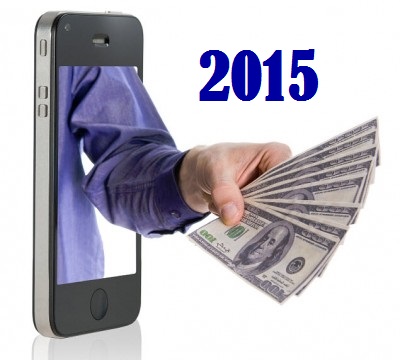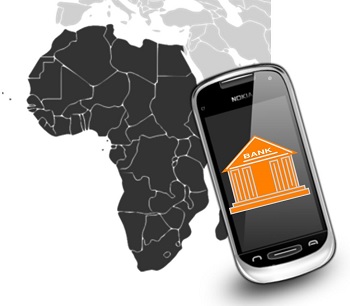Mobile commerce may become more refined in 2015
The future of mobile payments is still somewhat uncertain, despite the growing popularity of mobile commerce. In 2015, there may be many changes seen in the mobile payments space, especially as new services become available and more people become comfortable with the idea of paying for goods and services from their phones. Security may become a major issue in 2015 as organizations specializing in mobile commerce begin to take steps to ensure that consumer information is safe from exploitation.
Apple Pay may serve to bolster the power of the mobile payments industry
Much of the conversation regarding mobile payments is likely to revolve around Apple Pay this year. According to a recent report from Forrester Research, the new payment service from Apple is expected to energize the mobile market. The report suggests that Apple Pay will drive the adoption of new wearable devices that have been developed by Apple and help bolster mobile payments overall. The report predicts that mobile payments in the United States will grow to $142 billion by 2019, with new mobile services, like Apple Pay, making it easier for consumers to spend money through their mobile devices.
Security will become a major priority in 2015
 Security budgets are likely to increase across numerous industries this year. Many businesses have begun to take security more seriously because of the high-profile data breaches that were seen in 2014. These companies are investing more in security measures, especially those designed for the mobile space. The report from Forrester suggests that security spending will increase this year, but so too will the number of data breaches.
Security budgets are likely to increase across numerous industries this year. Many businesses have begun to take security more seriously because of the high-profile data breaches that were seen in 2014. These companies are investing more in security measures, especially those designed for the mobile space. The report from Forrester suggests that security spending will increase this year, but so too will the number of data breaches.
Consumers are becoming more comfortable with mobile payment services
Consumers are expected to become more confident in mobile commerce in the coming year. New services are being launched that include features that consumers have been demanding. These services are also becoming more secure and offering better shopping and payment experiences. As such, consumers are becoming more comfortable with using these services to pay for the products that they are interested in.
Customers that have never had access to financial institutions are using smartphones to change their capabilities.
Many of the countries in Africa have been extremely underserved by banks for a range of different reasons, but mobile payments are now bringing financial services to customers who have always been unbanked.
This is especially true in Nigeria, where mobile money is becoming an important driver in the local economy.
The Central Bank of Nigeria has launched a massive initiative to boost the use and access of mobile payments and money. Among the reasons that this is an important effort is that it will provide them with a tremendously larger market as it will mean that those who were underbanked or completely unbanked will suddenly be able to access financial services by way of their mobile devices.
With mobile payments and banking, location no longer presents a barrier to being able to reach consumers.
This access to mobile banking is bringing individuals who had been far removed from participation in much of mainstream commerce into the ability to take part in widespread economic transactions. Therefore, this means that consumers that had previously been outside of the center of commerce will be accessible to industries beyond simple payments and into pensions, insurance, and other areas.
 None of those industries had been able to establish physical locations that would allow them to be able to sell to consumers in the traditional way, but by using mobile commerce and accepting transactions over smartphones, this has changed the game, entirely.
None of those industries had been able to establish physical locations that would allow them to be able to sell to consumers in the traditional way, but by using mobile commerce and accepting transactions over smartphones, this has changed the game, entirely.
As the growth in telecom and smartphone and mobile technologies continues to grow and expand, and as the financial services industry increasingly rises to the challenge of offering mobile payments and banking services, the situation has altered across entire African countries. People who live in rural communities that are nowhere near phone lines and cables are gaining access to banking and transactions through financial institutions and telecoms such as UBA and Airtel, MTN and Diamond Bank, First Bank, Stanbic IBTC Bank, Ecobank and Globacom.
Similarly, M-PESA has been making a tremendous splash in reaching the unbanked and rural Kenya, where the mobile money system has taken off extensively, with 17 million users (one third of the adult population of the country) and 40,000 agents. Every day, that service processes over 2 million transactions.
 Security budgets are likely to increase across numerous industries this year. Many businesses have begun to take security more seriously because of the high-profile data breaches that were seen in 2014. These companies are investing more in security measures, especially those designed for the mobile space. The report from Forrester suggests that security spending will increase this year, but so too will the number of data breaches.
Security budgets are likely to increase across numerous industries this year. Many businesses have begun to take security more seriously because of the high-profile data breaches that were seen in 2014. These companies are investing more in security measures, especially those designed for the mobile space. The report from Forrester suggests that security spending will increase this year, but so too will the number of data breaches.
 None of those industries had been able to establish physical locations that would allow them to be able to sell to consumers in the traditional way, but by using mobile commerce and accepting transactions over smartphones, this has changed the game, entirely.
None of those industries had been able to establish physical locations that would allow them to be able to sell to consumers in the traditional way, but by using mobile commerce and accepting transactions over smartphones, this has changed the game, entirely.